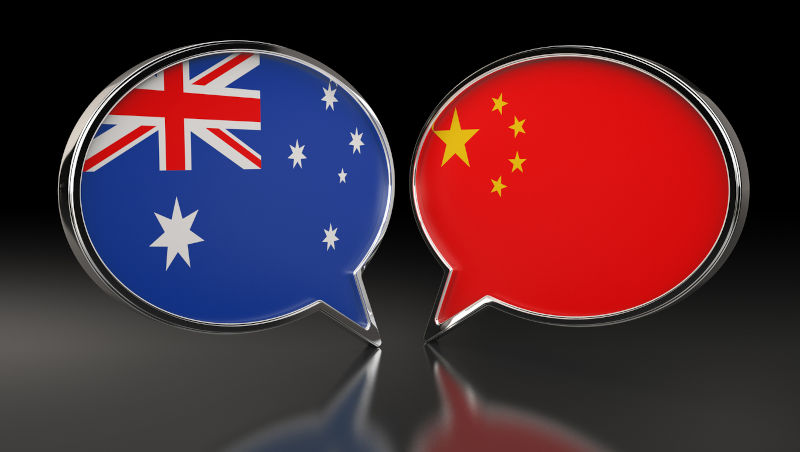“What you in Australia must understand is that you are more to blame than the CIA. You want this to happen, you want a certain administration in control, and you don’t want another administration in control. Do the loyalties of your intelligence services lie with your country as a whole or with the establishment in your country? In most instances, the answer you find is with the establishment.” Victor Marchetti, former CIA officer and deputy director at Pine Gap. (more…)
Jon Stanford
-
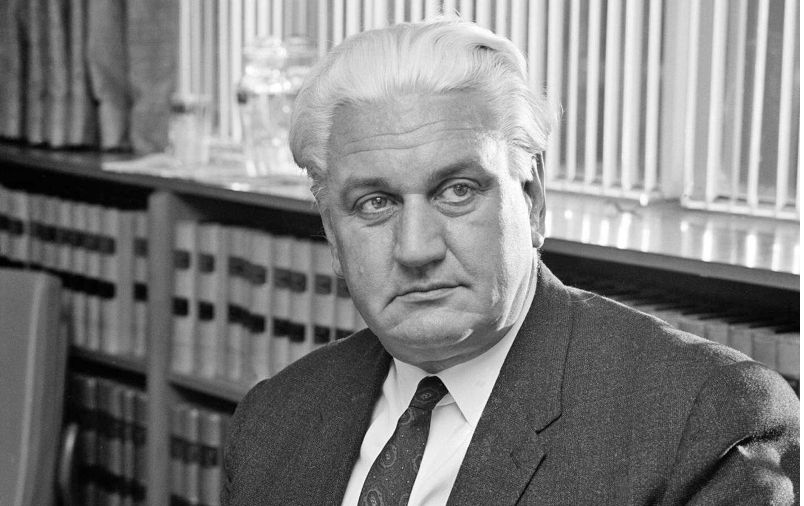
‘My Viceroy’ – Part 5
“I thought it no bad thing that the public in Australia and, perhaps, also those in other monarchical Commonwealth countries, not excluding Britain, should have been reminded that the Crown possessed reserve powers.” Sir John Kerr to the British High Commissioner to Australia, December 1975. (more…)
-

‘Extraordinary and reprehensible circumstances’ – Part 4
Malcolm Fraser was a conservative in terms of the constitution. His view was the Senate was “primarily a house of review – and apart from exceptional circumstances should not frustrate, certainly not on a purely obstructionist basis” (more…)
-

‘Spooky fiddling’: Preparing the ground – Part 3
“There is profoundly increasing evidence that foreign espionage and intelligence activities are being practised in Australia on a wide scale… I believe the evidence is so grave and so alarming in its implications that it demands the fullest explanation. The deception over the CIA and the activities of foreign installations on our soil… are an onslaught on Australia’s sovereignty.” – Gough Whitlam, House of Representatives, 1977 (more…)
-

Whitlam and the White House – Part 2
“Australia and the territories under its control have become increasingly important to the US defence and space establishments in recent years as a site for satellite tracking stations, nuclear test detection facilities, space research and related activities. With ample space, relatively advanced technology, political stability and conservative government, Australia has become a uniquely desirable base for both military and civilian programs involving operations in the Southern Hemisphere.” – White House position paper, 1962, quoted in Brian Toohey, Secret. (more…)
-

‘Mr Whitlam’s style’ – Part I
“I had no contemporary political heroes. I preferred Labor values to Liberal ones. I believed in a mixed economy. I disliked the people who’d got us into the Vietnam war. I was grateful to those who’d got us out. I admired Gough Whitlam, but not as much as he did.” (more…)
-
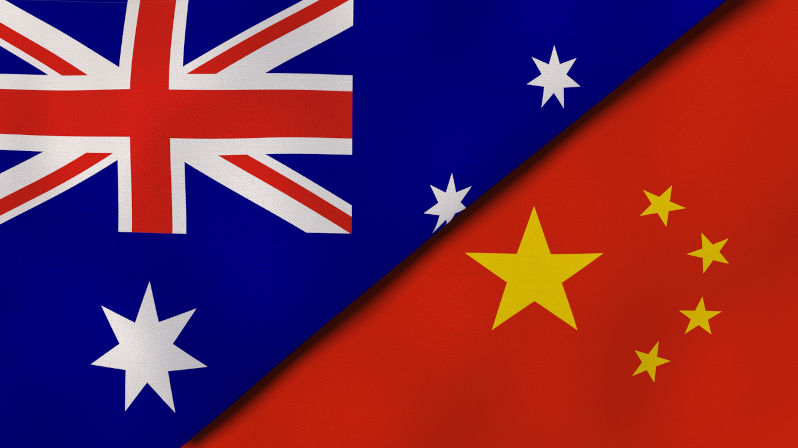
Bewilderingly unsophisticated: ASPI deputy director fires up China threat megaphone
Alex Bristow’s recent piece on China (“Don’t sidestep the China problem in public debate on defence”, Australian Financial Review, 14 February) demonstrates the extent to which the Australian Strategic Policy Institute has become a cheerleader for the US military-industrial complex. (more…)
-
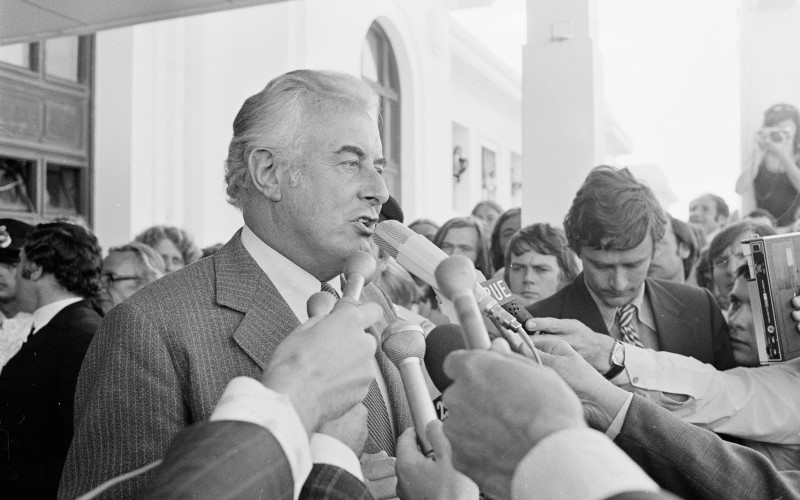
Covert forces and the overthrow of Edward Gough Whitlam: The series
The dismissal of Australian Prime Minister Gough Whitlam by Queen Elizabeth’s Vice-Regal representative, Sir John Kerr, was an extraordinary event. For almost fifty years a debate has raged about why the Governor-General took the unprecedented action he did on 11 November 1975. This five-part series puts a spotlight on the on the external events that were in play at the time (more…)
-

The Overthrow of Edward Gough Whitlam: A stain on Australia’s democracy – finale
“Gough Whitlam was an Australian democrat. He passionately believed in our institutions; the supremacy of parliament, the independence and integrity of the judiciary and the separation of powers to curb possible abuses by the executive government. In the dismissal these institutions failed us. Those with responsibility deceived us. Tradition and conventions built over centuries were trashed. The damage to our public life goes far beyond the injustice done to Gough Whitlam.” – John Menadue, ‘Postscript’, Pearls and Irritations (more…)
-

Whitlam’s overthrow: Queen’s Gambit to checkmate. Part 5
“Well, how about a call from the CIA to MI6 saying we have a security problem in Australia? More than one call. Dozens of calls. We have a security problem with the Prime Minister. He’s endangering national security for the United States and the Alliance. The evidence is he is making noises about our bases, he’s making threats; those bases are absolutely essential to the survival of the Alliance. Now what caused the Brits to act? They made a recommendation for the demise, yes. And in a way, it allowed a duly elected Prime Minister to be tossed out of office. It’s all scary really, when you think about it.”
TV Interview with Joseph Trento, author of The Secret History of the CIA (more…)
-
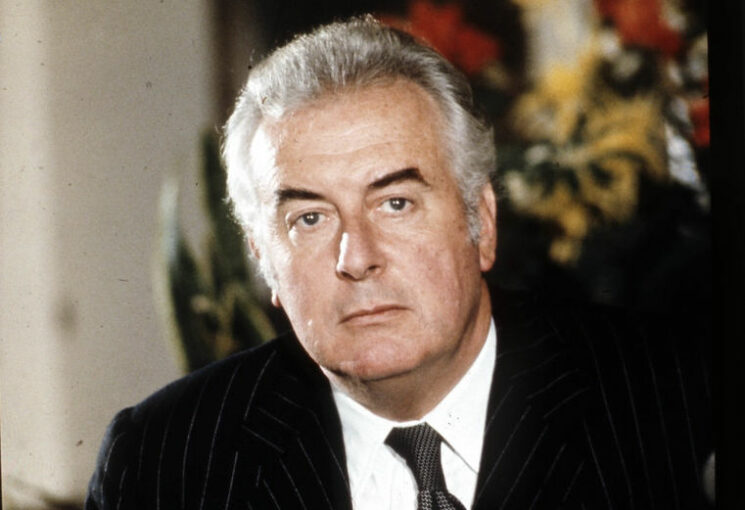
Spooky fiddling: The CIA playbook and the overthrow of Whitlam. Part 4
In a telephone conversation between Kissinger and Nixon following the 1973 military coup d’état in Chile, the President asked if “our hand” showed in the overthrow and death of the democratically elected President Allende. Kissinger explained that “we didn’t do it”, in terms of direct participation in the military actions. “I mean we helped them”, Kissinger continued, “[redacted words] created the conditions as great as possible.” (more…)
-
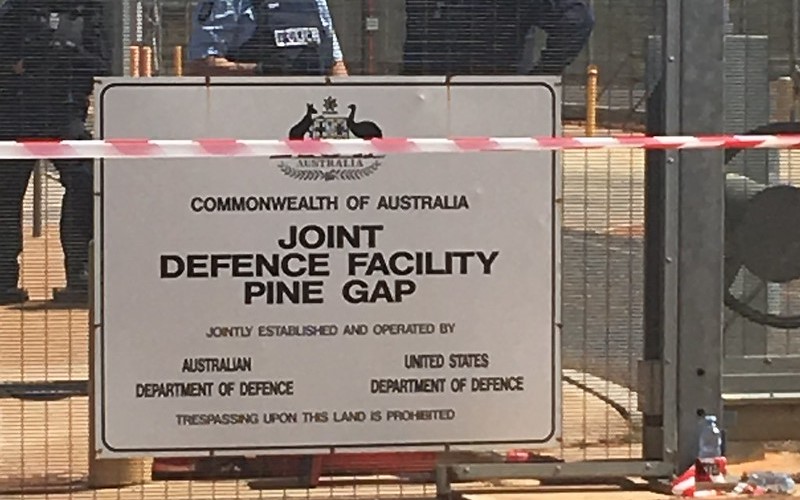
Cold War imperatives: Whitlam and the US National Security Council. Part 3
In July 1975, Malcolm Fraser spoke to US Ambassador Marshall Green about the Labor government’s alleged “desire for a ‘non-aligned position in world affairs’”. In fact, he added, ‘Whitlam and others may be trying to cause the US to take the lead in abandoning ANZUS’.” (more…)
-
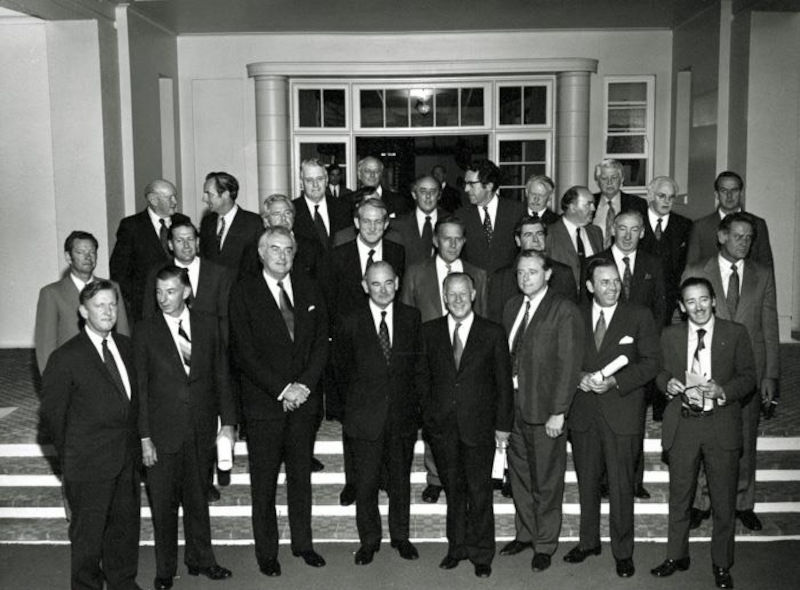
Stress testing the US alliance: Whitlam and the secrets of Pine Gap. Part 2
When Marshall Green, a very senior official in the State Department, was appointed as Ambassador to Australia in early 1973, President Nixon’s briefing regarding the relationship with Whitlam was succinct and on point: “Marshall, I can’t stand that cunt”. Green later reflected this was “a strange kind of parting instruction to get from your president”. (more…)
-

“Shame Fraser, shame”: The overthrow of Edward Gough Whitlam. Part 1
When offered the position of Governor-General by Prime Minister Whitlam in 1974, Sir John Kerr consulted friends and colleagues as to whether he should accept the appointment. One of them, Justice Robert Hope, queried why he would take such “a dead-end job, a hopeless job.” Kerr’s response was: “Oh, no, it’s a very powerful position. It has much more power than you realise.” – Jenny Hocking, Gough Whitlam, Vol. II. (more…)
-
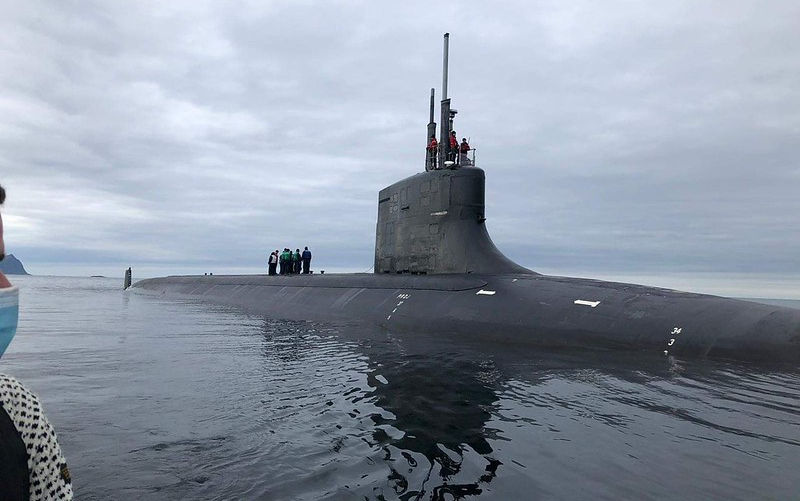
SSNs for the RAN: A response to Brian Toohey
Brian Toohey (Pearls and Irritations, 14 February 2023) makes a number of criticisms of the recent four-part series on national security by Michael Keating and myself that was published in Pearls and Irritations earlier this month. He contends that we have made “assertions that should not go unchallenged”, particularly in regard to our support for the acquisition of nuclear-powered submarines (SSNs) by the RAN. (more…)
-
A sovereign SSN capability and Australia’s national security strategy
There is no way that the UK or the US would ever contemplate surrendering sovereignty over the control of its military operations to any other power. Australia should not either. If Australia is to acquire a fleet of SSNs, the government needs to negotiate an agreement that avoids counter-productive short cuts and ensures sovereign control of what would be an immensely valuable capability for the Royal Australian Navy. (more…)
-

Hard power and Australia’s national security strategy
The previous two parts in this series addressed soft power and Australia’s alliances respectively. The focus of Part 3 is hard power and a discussion of self-reliance and Australia’s evolving military strategy. (more…)
-
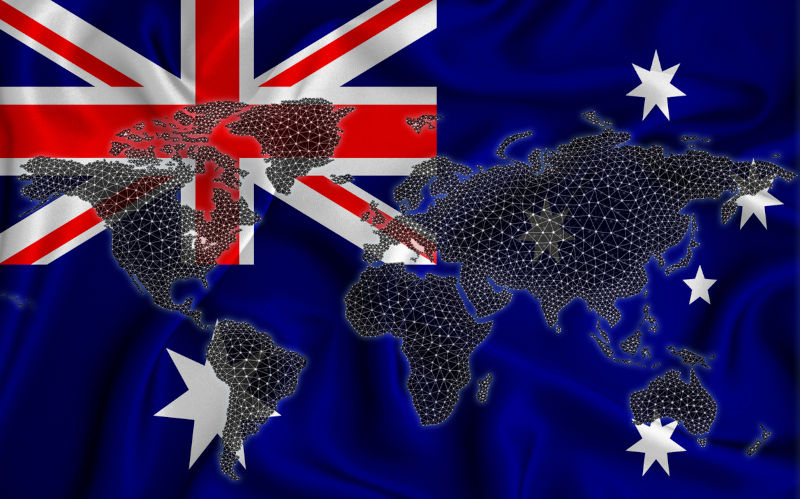
The role of alliances in Australia’s national security strategy
While alliances and treaties offer some protection against an aggressor, they cannot be counted upon. Australia needs to maintain an independent military capability to deter possible future threats to our independence – not least because we cannot rely on the US in all possible future circumstances. (more…)
-
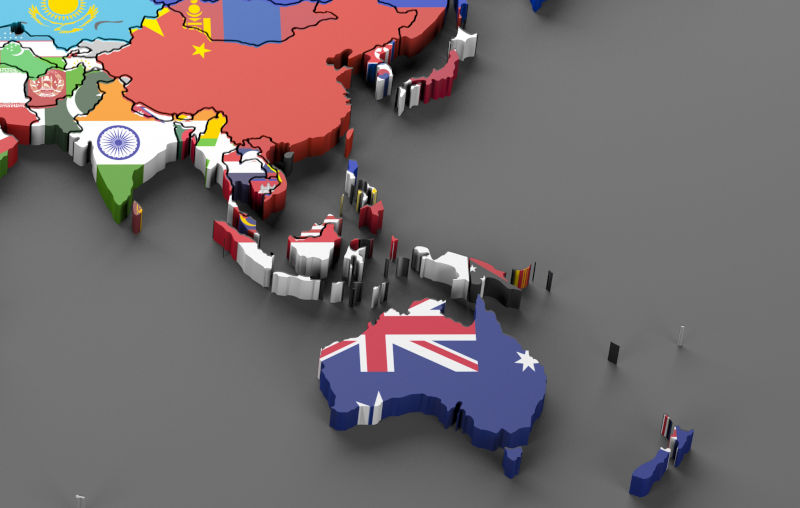
Australia’s National Security Strategy
To paraphrase former US President, Theodore Roosevelt, Australia’s national security is best achieved by talking softly while carrying a formidable stick as a deterrent. (more…)
-
The AUKUS pact: ‘If you want peace, prepare for war’
Australia’s nuclear-power submarines will greatly enhance Australia’s ability to provide for its own self-reliant defence. Nevertheless, the new strategic approach confronts us with a number of almighty challenges.
-
Why is Australia still investing in a balanced defence force?
When the Prime Minister recently compared Australia’s strategic situation to that in 1939, he was right in two respects. Both in 1939 and in 2021, we have put too much trust in a ‘great and powerful friend’ to secure our independence. Australia’s problem is a Defence department that, simply put, lacks foresight, resourcefulness and innovation. (more…)
-
Vale Gary Johnston, founder and sponsor of the Submarines for Australia group
Gary Johnston sadly died after a short illness on 10 March 2021. Gary was the founder of the Submarines for Australia website and the generous sponsor of the associated research, submissions and reports published on the site. (more…)
-
The smart money is that in defending Australia we will be on our own. Part 3
The government’s recent Defence Strategic Update suggests Australia faces the greatest threat to our independence since 1942. In this final article of three, I consider the need for a Review, both to design a new Australian military strategy and analyse the essential elements of the new force structure that this will require. (more…)
-
Part 2. Australia’s Defence Strategy: built-in resistance to change
The government’s Defence Strategic Update suggests Australia faces the greatest threat to our independence since 1942. This demands a sophisticated diplomatic strategy, the development of a sound military strategy and the careful analysis of how to deliver an appropriate force structure so as to address the threat in an acceptable timeframe. (more…)
-
Sharp-edged but sophisticated diplomacy needs to underpin our defence strategy Part 1
The government’s recent Defence Strategic Update suggests Australia faces the greatest threat to our independence since 1942. This demands a sophisticated diplomatic strategy, the development of a sound military strategy to deter an attack by a great power and careful analysis of how to design the right force structure to deliver it. This first article of three looks at the issues around diplomacy. (more…)
-
What should Australian submarines do? – Response to Brian Toohey
Brian Toohey’s challenging post (19 October) concerns what we want our submarines to do. In light of the recent Defence Strategic Update, the ADF needs to build a force capable of deterring an attack by a major power.
-
JON STANFORD. A Response to Michael McKinley on Future Submarines
In a series of five pieces in Pearls and Irritations last week, Dr Michael McKinley cites the recent report by Submarines for Australia at some length. While I acknowledge some of Dr McKinley’s concerns about our approach, it is not clear to me what he is proposing in its place. But insofar as I understand his criticisms I will respond to them in three areas below. (more…)
-
JON STANFORD: Second rate leadership: Future Submarine Part 4 of 4
I have suggested that recent governments have failed to provide leadership in the defence portfolio. Nowhere is this more apparent than in the case of SEA 1000, the future submarine program. (more…)


